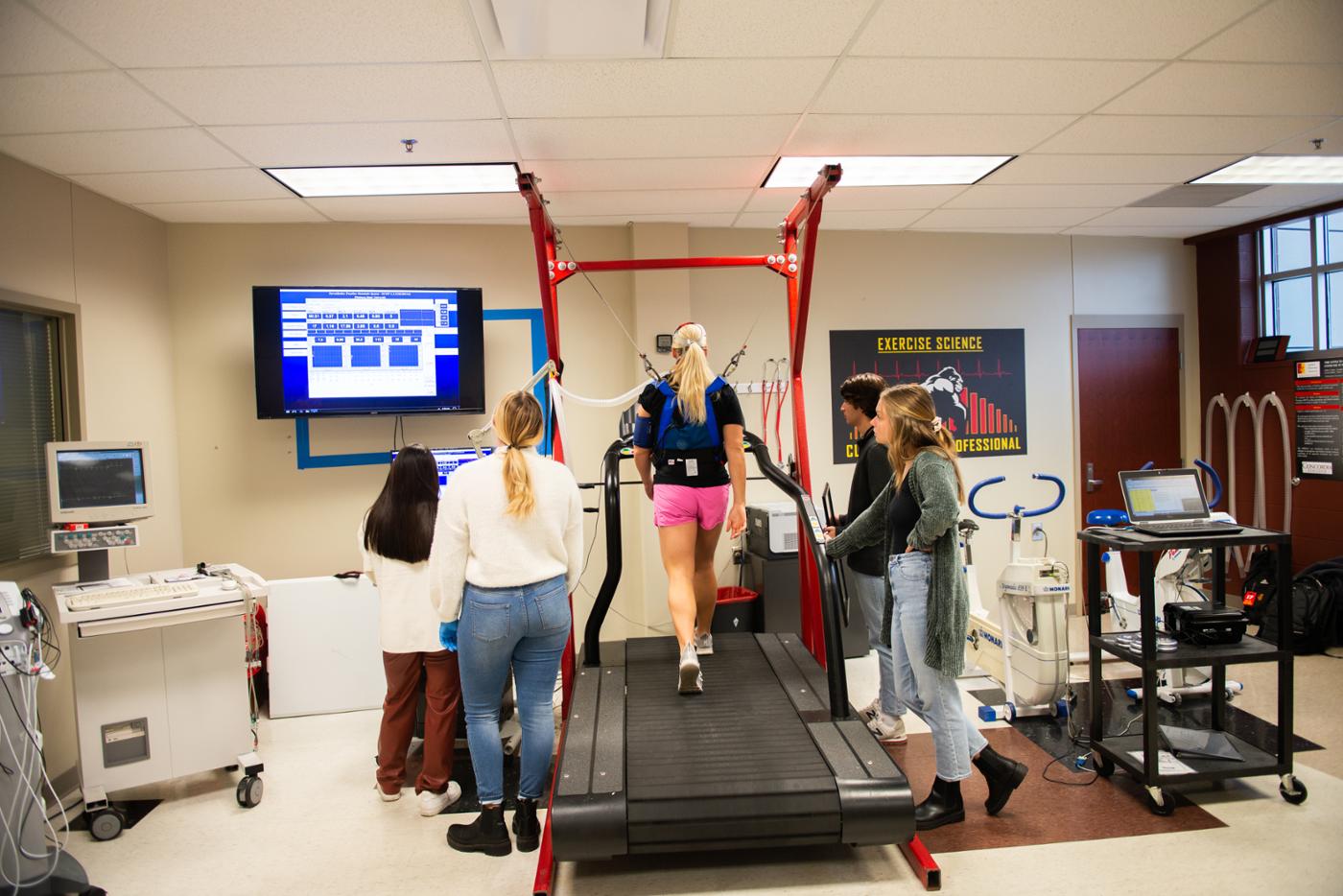Exercise Science Major
Study how our bodies respond and adapt to movement. Through the Exercise Science program at Pitt State, dive deep into the scientific aspects of exercise-induced physiological responses.
State-of-the-Art Facilities
Learn by doing in cutting-edge laboratories, including the applied physiology lab and human performance lab. These resources provide an immersive learning environment for hands-on experimentation and research.
Research Opportunities
Engage in research activities, collaborating with faculty members on projects that contribute to the growing body of knowledge in exercise science.
Practical Application
Apply your knowledge and skills in clinical settings. Before graduating, complete an internship, working under the supervision of experienced professionals.
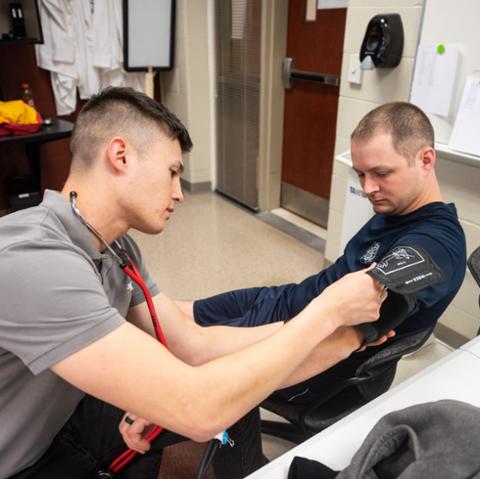
Our students work with Pitt State athletes, local police officers, and firefighters to collect data for research projects.
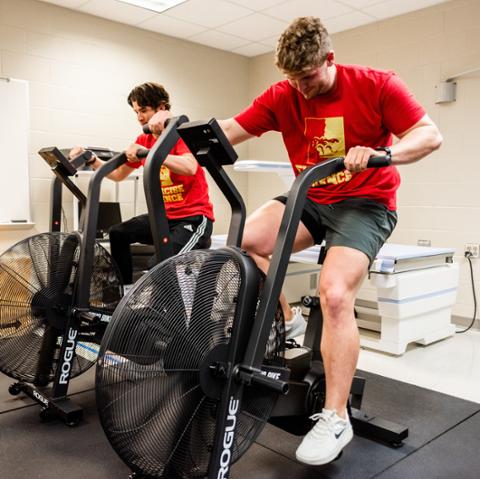
Students develop the practical skills necessary for assessing and training individuals in different fitness settings.
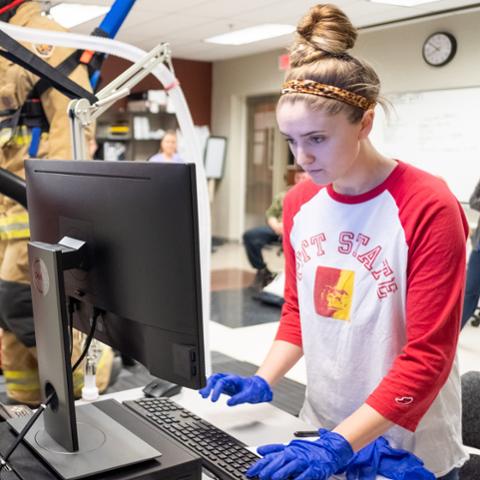
Real-World Research on Firefighters
Dani Wrensch accesses the latest technology to perform a VO2 Max test on firefighters.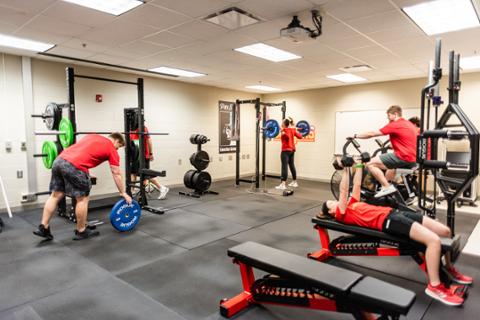
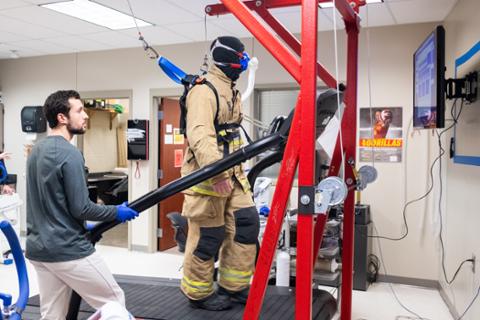
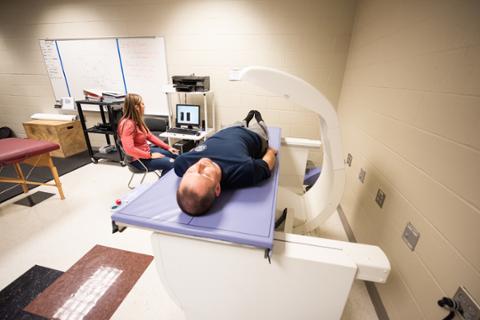
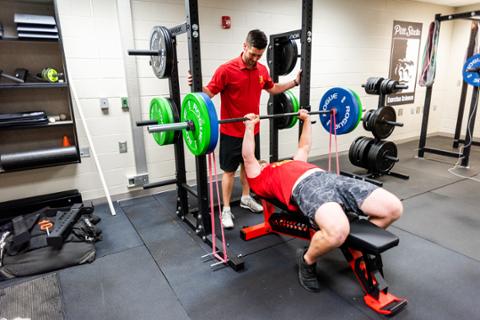
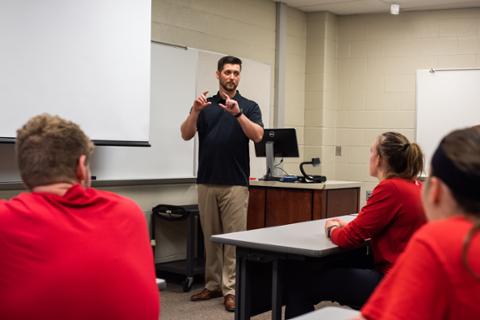
Exercise Science Careers
Exercise Science majors go on to careers in healthcare, fitness, rehabilitation, and research, including:
- Exercise Physiologist: Evaluate client fitness levels, set goals, and develop personalized exercise regimens.
- Personal Trainer: Work one-on-one with clients to achieve fitness goals through tailored exercise programs.
- Strength and Conditioning Coach: Improve physical performance, enhance endurance, increase strength, and prevent injuries of athletes.
- Clinical Exercise Physiologist: Design and implement exercise programs for patients with chronic diseases, cardiac conditions, or other medical issues.
- Researcher: Conduct studies, experiments, and clinical trials to expand knowledge and improve practices related to exercise, physical fitness, and human performance.
- Physical Therapist: Assist patients of all ages to improve their movement and manage pain through individualized care plans.
- Athletic Trainer: Specialize in prevention, diagnosis, treatment, and rehabilitation of injuries and medical conditions for athletes.
- Director of Sport Performance: Develop and implement performance enhancement programs for designated sports.
- Occupational Therapist: Assist patients with injuries, illnesses, or disabilities develop, recover, or maintain skills needed to live and work independently.
Many of our graduates pursue professional school in physical therapy, sports medicine, occupational therapy, and chiropractic medicine. Or, they train for additional certifications to reach their career goals as:
- ACSM Certified Exercise Physiologist (ACSM-EP)
- ACSM Certified Clinical Exercise Physiologist (ACSM-CEP)
- ACSM Certified Group Exercise Instructor (ACSM-GEI)
- ACSM Certified Personal Trainer (ACSM-CPT)
- ACSM/Exercise Connection Autism Exercise Specialist
- ACSM-ACS Cancer Exercise Specialist
- ACSM/NCHPAD Inclusive Fitness Specialist
- National Strength and Conditioning Association – Certified Strength and Conditioning Specialist
- National Strength and Conditioning Association – Certified Performance and Sport Scientist
- National Strength and Conditioning Association – Tactical Strength and Conditioning Facilitator
- Physical Activity and Public Health Specialist
- Youth Fitness Specialist
Emphases available
Optimize athletic performance and enhance physical fitness through evidence-based training. Learn how to design customized training programs, conduct performance assessments, and train athletes to reach their full potential.
Manage and prevent chronic diseases, rehabilitate, and improve the overall health of patients through activity. Students gain a solid foundation for professional school in physical therapy, occupational therapy, sports medicine, and more.
